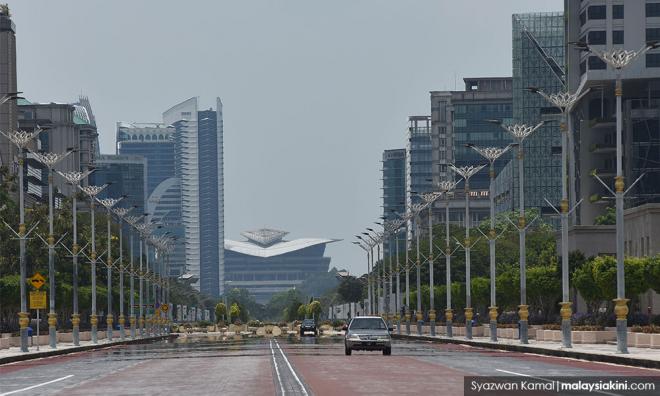
Like the rest of the world, Malaysia is heading towards a recession due to the Covid-19 pandemic.
A recession is defined as a period of economic decline caused by a fall in the gross domestic product (GDP) over two consecutive quarters.
Speaking to Malaysiakini, Universiti Malaya economics professor Rajah Rasiah expected the real GDP to contract by 1 percent during Q2 and Q3 respectively.
"A recession is more than likely. I expect (a contraction of) around 1 percent over the next two quarters. It could get worse if the spread of Covid-19 can't be stopped," he said.
The Malaysian Institute of Economic Research (Mier) published an even more grave forecast.
Factoring in the extended MCO, the think tank projected real GDP growth for 2020 to be -2.9 percent.
It also forecast 2.4 million job losses of which 1.6 million (67 percent) are unskilled workers.
Based on January employment numbers, this would mean 15.67 percent of employed people would lose their jobs.
Cost of social distancing
The economic downturn stems from social distancing, analysed Monash University Malaysia economics associate professor Poon Wai Ching.
Necessary to arrest the spread of the deadly and highly infectious Covid-19, social distancing measures ultimately lead to the collapse of industries that rely on consumer demand.
She forecasted that small and medium enterprises (SMEs) in the food and beverage, retail, travel, transportation, and manufacturing will be the hardest hit.
"Social distancing is necessary, but it comes at a great economic cost.
"Large-scale quarantines, travel restrictions and (other) social distancing measures drive a sharp fall in individual and business spending [...]
"When individuals stay home and businesses are not in operation for weeks, this causes lower revenue and higher retrenchment, and leads to rising unemployment," Poon explained.
A global pandemic, Covid-19 has caused many countries to also impose strict social distancing mitigation measures. This has disrupted the flow of goods in international and domestic supply chains.
Universiti Tunku Abdul Rahman (Utar) economics professor Wong Chin Yoong noted that this came at a time when crude oil prices were sinking to new lows and severely curtailing the Malaysian government's revenue.
Altogether, these scenarios have resulted in multiple shocks to the economy likely to be felt in almost all industries.
"We see a combination of a global and domestic shock; supply and demand shock; plus a worrying debt shock if this prolonged disruption unmasks corporate debt fragility [...]
"No industry is going to do well under these circumstances - neither the oil industry or the electrical and electronics, consumer products or services industries," he said when contacted.
Digital, the new normal
Amidst the glum predictions, a silver lining to not being able to access services in person was a mass migration to digital solutions.
Poon observed that ordering items online had spiked during the MCO and hoped more businesses would adjust their delivery systems to accommodate it.
"Consumers have dramatically moved toward e-ordering for all types of goods including food, groceries and household products.
"Firms should seriously consider investing in an online business concurrently with the usual physical face-to-face distribution channel because once customers change their preferences or habitual activities, they are not likely to go back to pre-Covid-19 norms," she advised.
Similarly, Wong noted that the most resilient businesses in this economic climate were the most agile in migrating their work or services online.
Like Poon, he prescribed that SMEs invest in becoming digital.
"Right after this incident, digitisation will be a new normal for all of us to pursue," he said. - Mkini



No comments:
Post a Comment
Note: Only a member of this blog may post a comment.